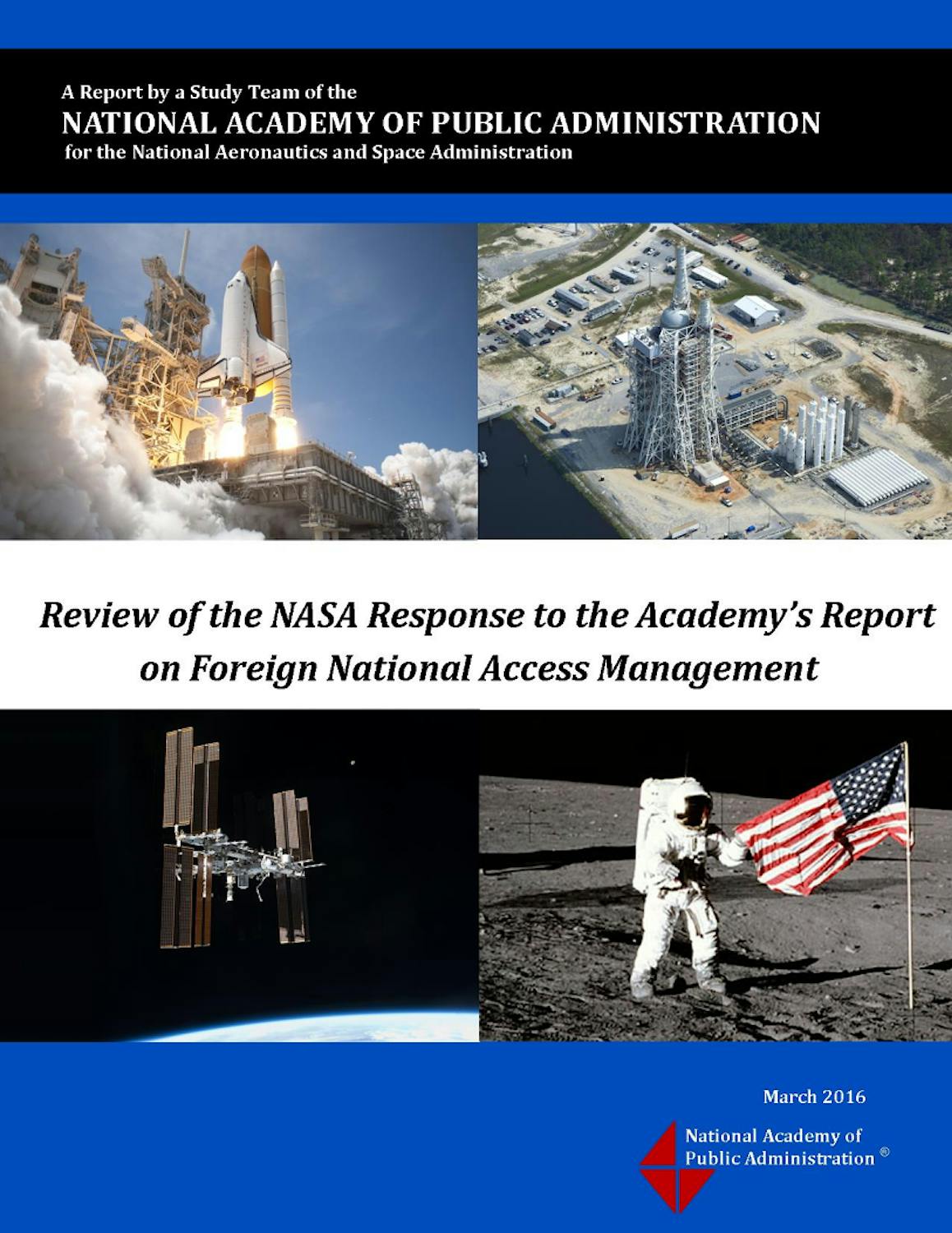
Review of the NASA Response to the Academy's Report on Foreign National Access Management
Under direction of the FY2015 Commerce, Justice, and Science appropriations report, the National Aeronautics and Space Administration (NASA) reengaged the National Academy of Public Administration (the Academy) to conduct a follow-up assessment to the Academy’s 2014 report on NASA’s Foreign National Access Management (FNAM).
Click the button below to view the View Study Report.
View ReportKey Findings
Specifically, the Academy was asked to assess NASA’s progress in regards to implementing each of the 2014 Panel Report’s 27 recommendations, which this review grouped into four components:
- Foreign National Access Management as a Program
- Export Controls
- Counterintelligence
- IT Security
A seven-person Academy study team (three members participated in the development of the 2014 report, including its project director) interviewed Headquarters staff as well as representatives from five or more NASA Centers to gauge the extent to which the 2014 Panel Report’s recommendations were implemented at the Center-level. The study team received input from a three-member Expert Advisory Group consisting of Academy Fellows.
Recommendations
NASA has taken actions to address each of the 27 recommendations found in the 2014 Panel Report as evidenced by demonstrable progress made during the last 26 months. While the status of completion across the wide range of recommendations varies, none were ignored. NASA clearly embraced the importance of the 2014 Panel Report and followed the Panel’s risk-based prioritization of recommendations to guide specific investment of substantial resources to develop the FNAM Program. It is clear from discussions and documentation from both Centers and HQ that FNAM has improved significantly during the past few years. Furthermore, NASA is committed to further enhance this program through periodic, rigorous review and improvement in the future.
At the same time, NASA has yet to fully implement several key recommendations, including promulgation of the FNAM Operations Manual. In addition, actions connected with a few recommendations may take several years to design, develop, and fully implement. Although additional work is needed, the study team determined that NASA is on a path toward institutionalizing an integrated FNAM Program that readily incorporates the activities of its components into daily Center operations, thus ensuring that it remains a priority for NASA senior leaders at all levels.
